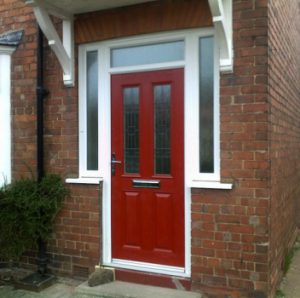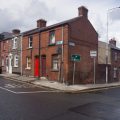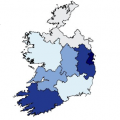
Social Housing Need In Dublin
22 Mar 2017Key Point
The main categories in need of social housing in Dublin are single person households, those living in private rented accommodation and the unemployed.
Introduction
There were 91,600 qualified applicants for social housing support in Ireland in September, 2016. This is less than five per cent of households. The largest share (39%) of those who qualified was found in the four Dublin local authorities (35,572). This is equivalent to 6.7% of the housing stock in Dublin (533,213). Dublin City Council has the highest share relative to its stock of housing at 8.2%. It is the second highest in the state after Galway City at 9.6%.
Household Composition and Employment Status
We have analysed the figures available for the four Dublin local authorities. The majority of qualified applicants in Dublin (43%) are single person households (15,239). See figure 1 for a further breakdown.
Figure 1

(Source: Housing Agency, 2016)
The second largest household group (33%) are single persons with a child/children (11,837), followed by couples with/without children (8,347) at 23%, and multi-adult households (149) at 0.4%.
20,575 (58%) of main applicants for social housing in Dublin are unemployed and in receipt of social welfare. The second highest share of applicants (22%) are employed (7,761), followed by the 12 per cent of applicants reliant on one-parent family support (4,177). See figure 2.
Figure 2

(Source: Housing Agency, 2016)
Current Tenure and Basis of Need
The current housing tenure of applicants in Dublin is dominated by those who are renting in the private sector (61.4%). Circa one-in-three (34.9%) rent with the support of rent supplement. See table 1.
Table 1
Figure 3 shows the aggregate breakdown of the basis of need for social housing support in the four Dublin local authorities1 .
Figure 3

(Source: Housing Agency, 2016)
Reliance on rent supplement2 is the most prominent basis of need for qualified applicants in Dublin at 39.8% (14,151). One-in-four (25.2%) cite unsuitable, overcrowded or unfit accommodation (8,970), and close to one-in-five (18.2%) require separate accommodation (6,482). Those categorised as reliant on an ‘institution, emergency accommodation or hostel’ account for 11.3% (4,011). Those with disabilities and exceptional medical needs account for 1,848 applicants (5.2%).
What Type of Accommodation is Required ?
The majority of applicants (81.8%) on the housing support list in Dublin require general accommodation (29,096). One-in-ten (10.5%) require homeless accommodation (3,745), followed by 4.3% who require accommodation suitable for those aged 65 years old or more (1,523), those with a disability3 at 2.3% (807), and travellers at 1.1% (401). As of January 2017, there were 3,247 adults and 2,046 dependents (those under 18 years old) in homeless accommodation in Dublin. It is estimated that there were circa 2,700 exits from homelessness in 2016.
Government spending to deal with housing need is being increased. Capital expenditure on housing will increase by €223.2m (52%) in 2017 relative to 2016, from €432m to €655m. Current expenditure will increase by €183.7m (48%) from €382m to €566m.
______________________________
Notes:
1 There are 13 categories for basis of need in the Social Housing Assessment.
2 Those in receipt of Housing Assistance Payment (HAP) are removed from the local authority’s housing list. People can apply for a transfer from HAP to another form of social housing within two weeks of receiving a letter confirming their HAP payment. Previous time spent on the housing list will be taken into account if a person applies for a transfer within this time frame.
3 Individuals with ‘an enduring physical, sensory, mental health or intellectual issue’







